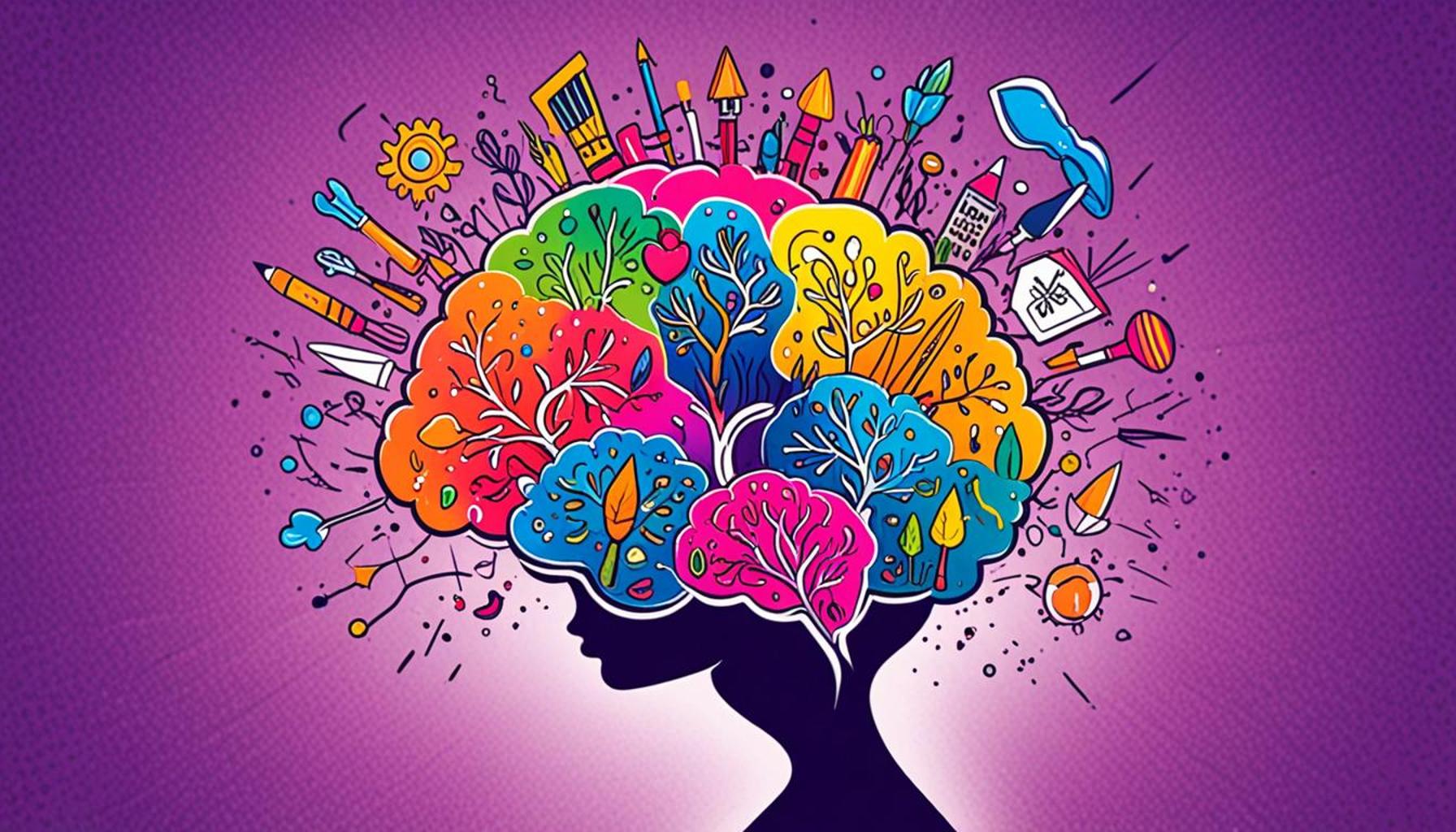The Learner’s Mindset: How to Embrace Challenges as Opportunities for Growth

The Importance of a Learner’s Mindset in Overcoming Challenges
In today’s rapidly changing world, the capacity to adapt and learn is not merely advantageous; it has become essential for success. Adopting a learner’s mindset can significantly alter the way individuals confront challenges. This mindset encourages seeing difficulties as precious opportunities for personal and collective growth. In Nigeria, a country known for its vibrant entrepreneurial spirit, this approach can have far-reaching effects not just on individuals, but on entire communities and industries striving for innovation.
Embracing a learner’s mindset embodies several core principles that can guide individuals through adversity:
- Adapting to new circumstances: Life is rife with unexpected changes—from market fluctuations to technological disruptions. By learning to cope with these shifting landscapes, individuals can cultivate resilience. For instance, during the COVID-19 pandemic, many Nigerian businesses pivoted to digital platforms to sustain their operations, showcasing adaptability in the face of unforeseen challenges.
- Creating innovative solutions: Many breakthrough innovations arise during tough times. Problems can catalyze creative thinking, leading to novel solutions that might not have been considered in calmer circumstances. An illustrative example is the rise of Nigerian fintech. Companies like Paystack and Flutterwave emerged, harnessing disruption to revolutionize payment systems in a previously underserved market.
- Building resilience: Confronting challenges directly fosters mental fortitude. Students and professionals alike learn to persevere through failures, developing the skills necessary to navigate life’s complexities. The Nigerian youth, often considered the backbone of the nation, are increasingly showcasing their grit and determination, stepping forward to forge their own paths despite economic uncertainties.
Understanding the benefits of cultivating a learner’s mindset is particularly relevant in Nigeria, where the entrepreneurial landscape is burgeoning. By reframing setbacks as learning experiences, individuals can harvest crucial lessons that catalyze their future growth. This shift isn’t merely personal but resonates throughout communities, inspiring collaborative effort, innovation, and the sharing of knowledge.
The learner’s mindset empowers individuals to actively seek the silver lining in every situation. As we examine effective strategies for nurturing this mindset, we will discover practical methods anyone can adopt to transform challenges into catalysts for personal and societal advancement.
Ultimately, the transition towards a learner’s mindset can reshape how Nigeria confronts its unique challenges, igniting a wave of creativity and resilience that can drive the nation towards a brighter, more innovative future.
CHECK OUT: Click here to explore more
Nurturing Resilience through a Learner’s Mindset
A learner’s mindset invites individuals to see challenges as stepping stones rather than stumbling blocks. This transformative outlook is particularly relevant in Nigeria, where diverse challenges, from economic fluctuations to social issues, are part of the daily landscape. By nurturing this mindset, individuals can cultivate vital skills that not only enhance personal growth but also contribute to the resilience of their communities.
One way to actively embrace a learner’s mindset is through self-reflection. Regularly assessing one’s thoughts, feelings, and reactions to challenges allows individuals to gain insights into their coping mechanisms and adjust their approaches accordingly. For example, Nigerian students can benefit from engaging in reflective practices after experiencing academic setbacks, allowing them to identify specific areas for improvement and fostering a greater understanding of their educational journeys.
Moreover, the pursuit of continuous learning is crucial for embodying a learner’s mindset. By seeking opportunities for knowledge acquisition—whether through formal education, online courses, or community workshops—individuals can build a solid foundation that prepares them for unforeseen challenges. Below are some strategies to foster this commitment to lifelong learning:
- Embrace Diverse Learning Sources: From traditional schools to online platforms, exploring a variety of educational resources can enhance one’s skill set. In Nigeria, platforms like Andela and Decagon provide unique learning programs catering to technology enthusiasts.
- Network and Collaborate: Engaging with peers or mentors fosters an enriching learning environment. Sharing experiences and insights among entrepreneurs can spark innovation and yield unique solutions to communal challenges.
- Stay Curious and Open-Minded: Approaching situations with curiosity encourages exploration and understanding. This mindset propels individuals to ask questions that lead to deeper insights about personal limitations and potential growth areas.
Equally important is the cultivation of a supportive environment. Individuals thrive when surrounded by those who encourage risk-taking and view mistakes as part of the learning process. In Nigeria, community engagement and support networks are vital. Initiatives like the Nigerian Youth Service Corps (NYSC) exemplify collective resilience, as participants foster skills and leadership in various facets of society.
Ultimately, embracing challenges as opportunities for growth requires an unwavering commitment to adopting a learner’s mindset. This approach empowers individuals to shift from a fixed way of thinking to a more dynamic perspective that enhances adaptability and creativity. As we delve further into specific techniques to nurture a learner’s mindset, we will uncover how this paradigm shift can profoundly impact both personal trajectories and societal progress in Nigeria.
| Advantage | Description |
|---|---|
| Increased Resilience | Adopting a learner’s mindset fosters resilience, allowing individuals to bounce back from setbacks more effectively. |
| Enhanced Problem-Solving Skills | Embracing challenges develops critical thinking, enhancing problem-solving skills that can be applied in various situations. |
| Increased Motivation | A learner’s mindset cultivates motivation for continuous growth and learning, sparking a desire to overcome obstacles. |
| Positive Long-term Outcomes | By embracing challenges, individuals can achieve long-term growth and success in their personal and professional lives. |
Incorporating a learner’s mindset not only equips individuals to deal with immediate challenges but lays the foundation for a fulfilling journey of self-improvement and discovery. As people become increasingly open to learning from their experiences, they begin to see failure as a stepping stone rather than a stumbling block. This shift in perspective transforms how they approach daily challenges, ultimately leading to greater satisfaction and success. By discovering available resources, mentoring opportunities, or even community support, learners can enhance their growth potential while fostering an enriching environment around them. The journey of embracing challenges opens up a new realm of possibilities, encouraging individuals to venture beyond their comfort zones and explore uncharted territories. In this dynamic process, they begin to realize the true value of resilience, adaptability, and the power of a positive mindset in shaping their future.
SEE ALSO: Click here to read another article
Transforming Setbacks into Victories
In today’s fast-paced world, the ability to transform setbacks into victories is an essential skill nurtured by a learner’s mindset. For many in Nigeria, challenges are part of the daily experience, whether it be through unemployment, infrastructural issues, or educational hurdles. Yet, understanding how to glean lessons from these hardships not only fosters personal development but also instills a sense of hope within communities.
One effective strategy to convert challenges into learning experiences is through goal setting. Setting realistic and achievable goals empowers individuals to envision their path forward, facilitating a concrete plan to address obstacles. For instance, aspiring entrepreneurs can outline their business aspirations, breaking down large objectives into smaller, manageable tasks. This method not only encourages accountability but also provides clear milestones, making each step toward success visible and rewarding.
Moreover, the concept of failure analysis plays a crucial role in the learner’s mindset. Rather than viewing failure as a definitive endpoint, it can be perceived as a critical part of the learning process. Nigerian innovators such as Chinedu Echeruo, who developed the travel app Tripology after facing several initial failures, exemplify this principle. These experiences allow individuals to dissect their failures, uncovering underlying issues and creating strategic adjustments that pave the way for future success.
Furthermore, cultivating a community of practice can significantly enrich the learner’s mindset. In Nigeria, local groups dedicated to skill-sharing and peer-to-peer support serve as incubators for creativity and problem-solving. By coming together, individuals can collectively address challenges, offering diverse perspectives that ultimately lead to innovative solutions. Initiatives such as hackathons, collaborative workshops, or even informal meet-ups enable knowledge transfer while breeding a culture that values teamwork in overcoming hurdles.
Academic institutions also play a pivotal role in fostering a learner’s mindset among students. Emphasizing practical learning experiences integrated within the curriculum can dramatically shift perceptions concerning challenges. In schools across Nigeria, project-based learning can inspire creativity, where students tackle real-world problems, enhancing their critical thinking skills while providing a platform for collaborative problem-solving.
Moreover, leveraging technology is essential in fostering a learner’s mindset. One notable example is the rise of tech hubs in cities like Lagos and Abuja, where young individuals engage with digital tools that facilitate innovative solutions to community challenges. Platforms like the Nigerian Innovation Hub actively support budding entrepreneurs, guiding them in using their skills to address pressing societal issues while highlighting the importance of adapting to failure and learning from it.
Another key aspect to consider in nurturing a learner’s mindset is the role of mindfulness. Practicing mindfulness can help individuals better manage their emotional responses in the face of adversity. Techniques such as meditation or journaling allow for a deeper understanding of one’s feelings and reactions, ensuring that challenges are approached with a calm and analytical perspective. In environments where stress and pressure may be prevalent, this proactive approach can lead to more constructive problem-solving.
As individuals in Nigeria navigate the complexities of their environments, embracing the learner’s mindset provides tools necessary to turn challenges into opportunities for growth. This journey involves not only personal resilience but also a collective effort within communities to uplift one another through shared knowledge and support.
SEE ALSO: Click here to read another article
Conclusion: The Path to Empowerment Through a Learner’s Mindset
In conclusion, adopting a learner’s mindset is not merely a choice, but a transformative approach that allows individuals to navigate life’s challenges with resilience and creativity. For many in Nigeria, where obstacles such as economic hardships and limited resources are commonplace, embracing this mindset can spark significant personal and communal growth. By viewing challenges as opportunities, individuals can reshape their narratives, fueling innovation and fostering a proactive stance toward adversity.
The strategies we’ve explored—from goal setting and failure analysis to cultivating a community of practice—serve as invaluable tools in this journey. They equip individuals with the skills needed to break down barriers and build a roadmap toward success. Additionally, engaging with technology and nurturing mindfulness help strengthen emotional resilience, making it easier to approach difficulties with a clear mind and a determined heart.
As Nigeria continues to evolve, it becomes increasingly essential for individuals to leverage the collective strength of their communities. By forging connections and sharing knowledge, people can turn their unique experiences into shared victories. This interconnectedness not only enriches personal development but also propels society toward a future built on mutual support and innovation. The journey to embracing the learner’s mindset may be challenging, but with the right tools and a shared vision, the potential for growth is boundless, promising a brighter future for all.


